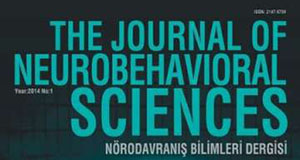
In this study, it was aimed to examine the relationship between separation anxiety and social anxiety in university students. N=102 women (age: 22,62; ss: 5,448) and n=12 men (age: 21,17; ss: 5,306) in total N=114 (age: 22,46; ss: 5,429) university students were participants.
Sociodemographic data form, Adult Separation Anxiety Questionnaire, Liebowitz Social Anxiety Questionnaire and Separation Anxiety Questionnaire were applied to university students. Statistical analyzes of the data obtained from the study were conducted with the Statistical Program for Social Sciences (SPSS v21). In the intergroup comparisons, independent sample t test and one way ANOVA for normal dividing data; Kruskal Wallis test and Mann Whitney U test were performed for normal nondispersed data. Relations between scores obtained from the scales were calculated by Pearson correlation analysis.
As a result of analysis, a significant difference was found between social anxieties and between avoidance scores according to mother education level and income level. Separation anxiety scores and adult separation anxiety scores were found significantly higher in those with general medical illness stories than those without general medical illness stories. There was a significant positive correlation between social anxiety and avoidance scores of university students and separation anxiety and adult separation anxiety scores. As a result of the research, it was thought that separation anxiety caused by traumatic experiences such as separation from mother or caregiver in childhood could be prolonged in adulthood and this could be responsible for social anxiety and avoidance behaviors.




